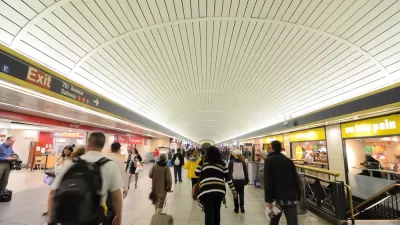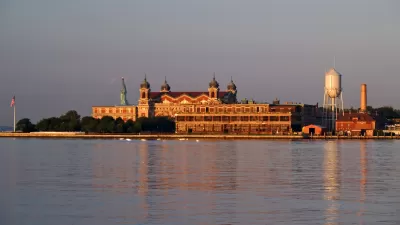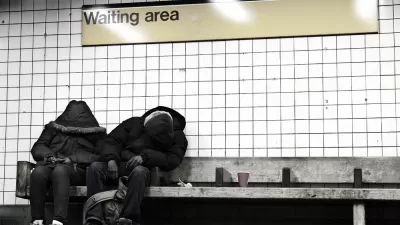Because of an acute shortage in accommodations for the city's homeless, NYC's Department of Homeless Services (DHS) is willing to pay exorbitant sums to house the needy in privately owned buildings. The practice is not without its critics.
Joseph Berger spotlights the DHS's lucrative practice of subsidizing the private operational of homeless shelters, which has persuaded landlords such as Alan Lapes, who owns or leases about 20 of the 231 shelters citywide, to convert their buildings (often one room at a time) into shelters.
"With the number of homeless people rising to 30-year record levels — over 47,216 people as of early this month, 20,000 of them children — the city has struggled to find landlords willing to accommodate a population that includes people with mental health and substance abuse problems. So the city has resorted to housing adults in single-room-occupancy buildings originally designed for long-term residents who pay stabilized rents," explains Berger.
"Most of the other shelters and residences are run by the city or by nonprofit agencies, but [Lapes's] operation is profit-making, prompting criticism from advocates for the homeless and elected officials."
"Mr. Lapes has lately stirred anger for his contracts through the Department of Homeless Services. More than 200 residents and elected officials packed a community meeting last week to express outrage at the transformation of two buildings he owns on West 95th Street into homeless shelters, without the usual public and legislative scrutiny."
“The city needs to make sure there’s affordable housing instead of waiting for shysters to come forward to make thousands of dollars off these poor unfortunate people,” State Assemblywoman Linda B. Rosenthal, a Manhattan Democrat, said at the meeting, promising to push for reforms. “Getting rid of the profit motive will reduce some of the bad actors.”
FULL STORY: For Some Landlords, Real Money in the Homeless

Planetizen Federal Action Tracker
A weekly monitor of how Trump’s orders and actions are impacting planners and planning in America.

Restaurant Patios Were a Pandemic Win — Why Were They so Hard to Keep?
Social distancing requirements and changes in travel patterns prompted cities to pilot new uses for street and sidewalk space. Then it got complicated.

Map: Where Senate Republicans Want to Sell Your Public Lands
For public land advocates, the Senate Republicans’ proposal to sell millions of acres of public land in the West is “the biggest fight of their careers.”

Maui's Vacation Rental Debate Turns Ugly
Verbal attacks, misinformation campaigns and fistfights plague a high-stakes debate to convert thousands of vacation rentals into long-term housing.

San Francisco Suspends Traffic Calming Amidst Record Deaths
Citing “a challenging fiscal landscape,” the city will cease the program on the heels of 42 traffic deaths, including 24 pedestrians.

California Homeless Arrests, Citations Spike After Ruling
An investigation reveals that anti-homeless actions increased up to 500% after Grants Pass v. Johnson — even in cities claiming no policy change.
Urban Design for Planners 1: Software Tools
This six-course series explores essential urban design concepts using open source software and equips planners with the tools they need to participate fully in the urban design process.
Planning for Universal Design
Learn the tools for implementing Universal Design in planning regulations.
Heyer Gruel & Associates PA
JM Goldson LLC
Custer County Colorado
City of Camden Redevelopment Agency
City of Astoria
Transportation Research & Education Center (TREC) at Portland State University
Camden Redevelopment Agency
City of Claremont
Municipality of Princeton (NJ)





























